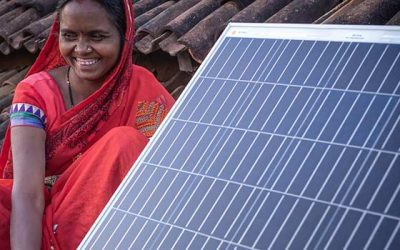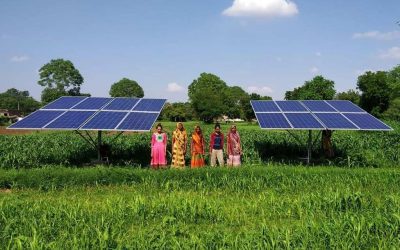This increased efficiency has also seen a subsequent price drop in the cost of electricity generation.
Cost of Solar over the years:
Back in 2010, a megawatt-hour of electricity gleaned from solar photovoltaics cost a global average of $378 to generate or roughly INR 30,000. That’s without the effect of any subsidies which may have been applicable in some areas. By 2019, that cost had tumbled down to just $68 or roughly INR 5,300.
The cost of solar panels depends on the type of solar panels and wattage of solar panels.
Today most of the solar panels used around the world for residential and industrial projects are either polycrystalline solar panels or monocrystalline solar panels.
For polycrystalline solar panels, prices vary from Rs 19 / watt to Rs 30 / watt.
How much do our appliances cost?
Our solar appliances, namely the solar refrigerators cost anywhere between Rs 75,000 and Rs 1,25,000 with installation being undertaken by our in-house team of engineers.
It comes in a package with two or more solar panels, storage batteries and a microcontroller.
The 100 L DC refrigerator consumes only 0.329 kWh (units) per 24 hours vs their conventional AC electricity-powered counterparts that take up 1.3 units/24 hours. These refrigerators are perfect for small enterprises in the rural parts of India, whether it’s for selling fish, dairy products or any other retail items that need refrigeration.
How does it affect the end-users?
Our beneficiaries have seen an increase in profits between Rs 5,000 to Rs 10,000 per month on top of a reduced electricity bill and an increase in customers while also reducing their carbon footprint.
In the long run, solar solutions fare better since they pay for themselves by the savings in electricity. DDSolar also allows beneficiaries to pay in EMIs with flexible repayment plans to allow them to adopt solar solutions at the earliest!




